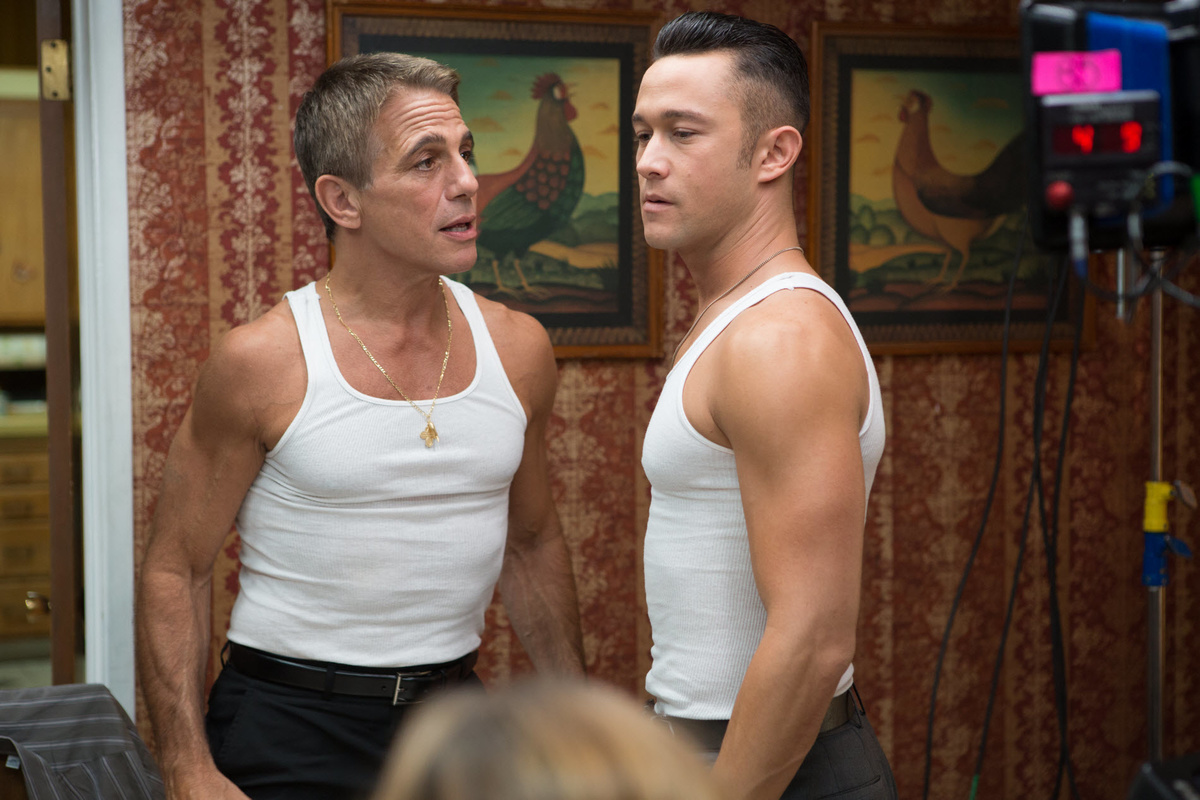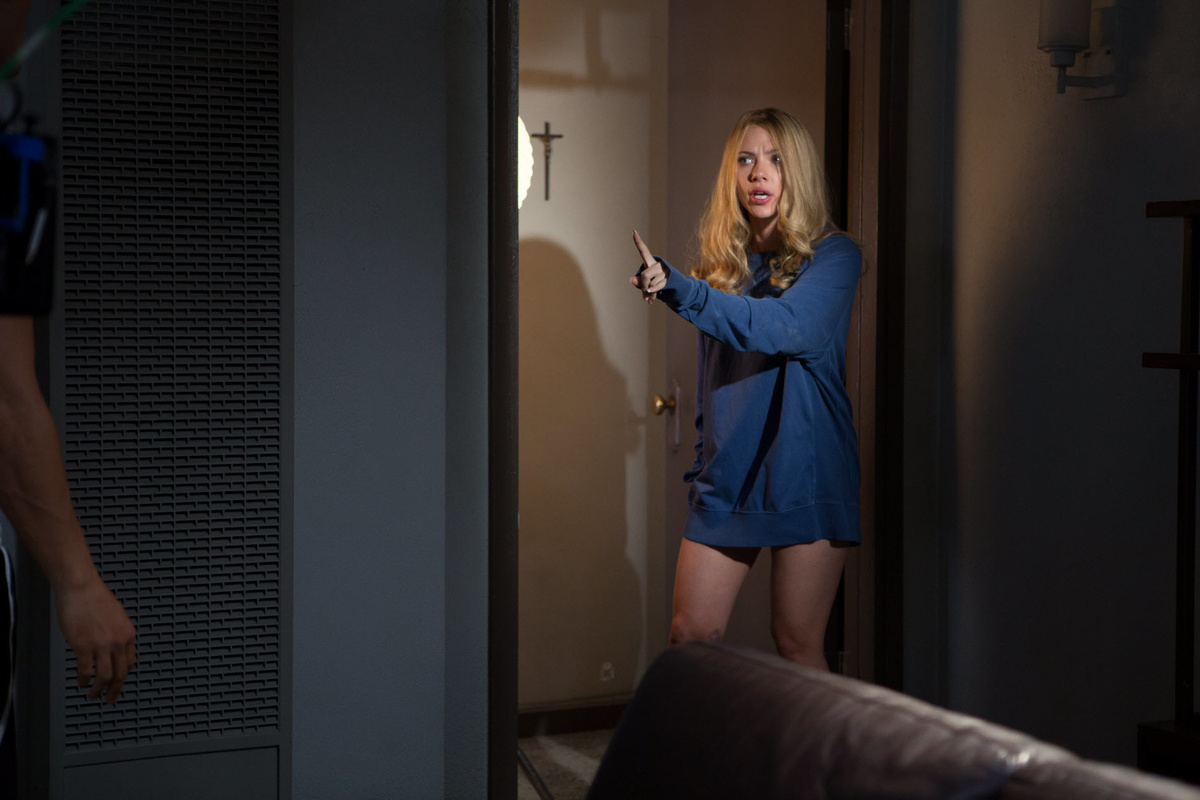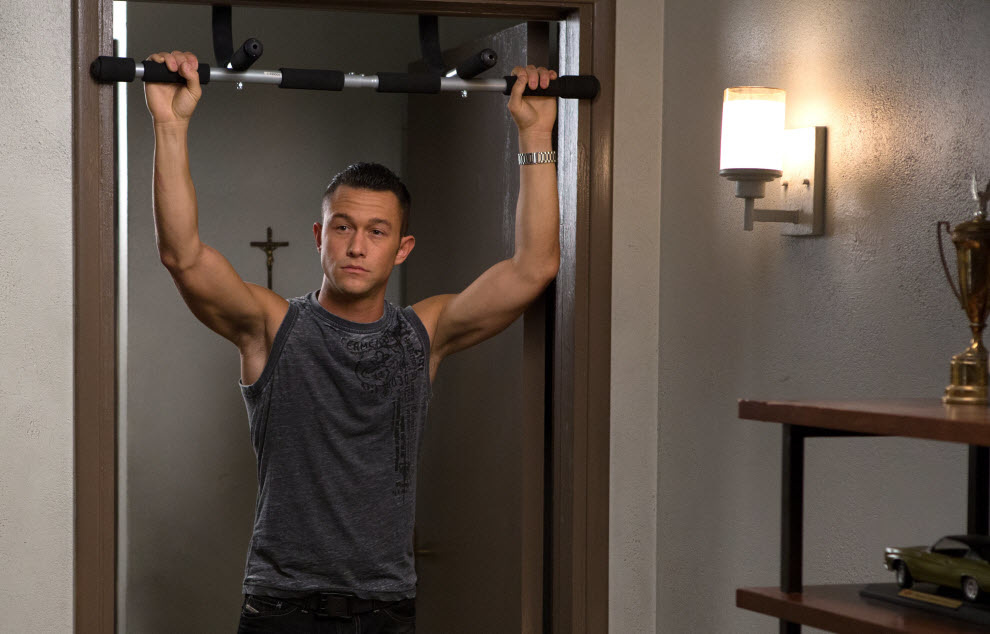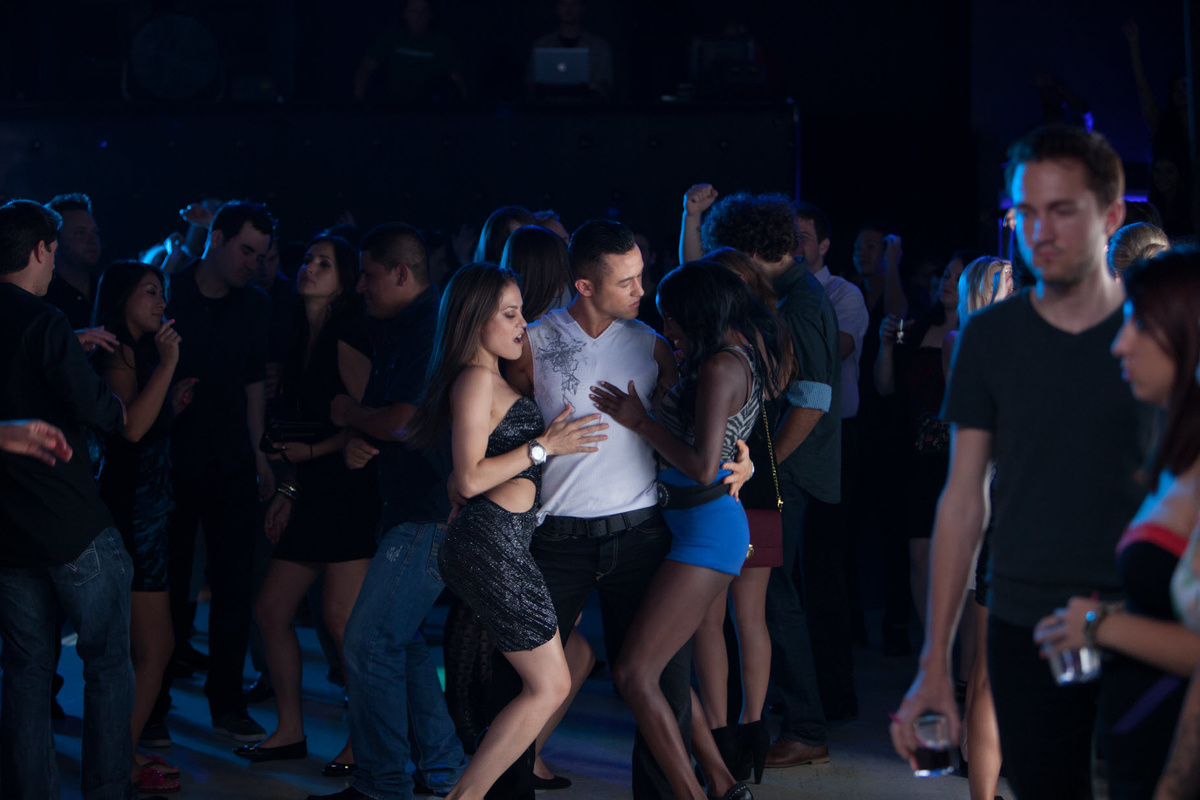“So Full of Himself, Yet Running on Empty,” is how The New York Times title their review of Joseph Gordon-Levitt’s directorial debut Don Jon, a fluff-fluent study of masculinity at its most self-absorbed and dissatisfied, and the lifestyle-markets that work so hard to prime that mindset. “I wanted to tell a story about how people treat each other like things, and not like people, and how media plays into that,” Gordon-Levitt tells i-D. “It comes I think from growing up as an actor. Actors sometimes get treated like objects on a shelf. I’ve experienced that, but I think everybody experiences it. Everybody knows what it’s like not to be listened to, to be put in a box with a label on it.”

With (500) Days of Summer stylings, Fight Club satirising and a Scorsese-esque ear for New Jersey machismo, writer/director/star Gordon-Levitt has 2013’d the legend of libertine Don Juan, whose name is interchangeable with ‘womaniser’ in his native Spain. Gordon-Levitt is Joe Mortello, a New Jersey bartender who frequents clubs on the hunt for “dimes” (10/10 girls) to take back to his manicured bachelor pad. “Don Jon treats women like things for his consumption, objects for his pleasure,” Gordon-Levitt says. “He works through one after another and takes a lot of pride in it. I think he likes to talk about it more than being with the girls themselves.” But the chase doesn’t sate him, and Jon finds himself leaving his prizes wrapped in his duvet while he sneaks off to load his Macbook and glaze-out while he gorges on porn. “Pornography is a perfect symbol for this disconnect. A guy watching the image of a woman on the screen; she’s not there, she doesn’t know he’s there. There’s no interaction, no connection, but that’s what his sexuality has come to be. He’s developed his notions of what sex is supposed to be, and women are supposed to be sex, from pornography. He applies pornography to the women he has sex with.”

Gordon-Levitt, who is 32, actively identifies himself as a feminist, saying in January this year: “The Hollywood movie industry has a bad history of sexism. It’s come a long way, but it ain’t all the way yet.” His directorial debut was originally called Don Jon’s Addiction, but it would be wrong to talk of this film as a brow-beating crusade against the evils of simulated sex, when it’s more a look at how pervasive such media can be. One night Jon finds a dime, in the curvy shape of Scarlett Johansson’s Barbara Sugarman. But she won’t go home with him. When he manages to get her on a date, she’s stand-offish, cool. It quickly dawns on Joe that, to get her in his bed, he’s going to have to become someone she’s already dreamt up; a more aspirational job, a better education, more money, a concern for family, a hundred little sacrifices. He’s going to have to be the guy she sees in movies.

“Barbara and Jon are two sides of the same coin,” Gordon-Levitt explains. “Whereas Jon is intent on embodying the normative masculine type, Barbara is equally intent at embodying the feminine type. But whereas Jon has learnt what men and women and love and sex are meant to be from pornography, she has learnt it from romantic Hollywood movies.” “She’s absorbed in her dreams, and they manifest themselves in her life,” Johansson continues. “Like Jon, Barbara has created a fantasy world. She wants the perfect man, the perfect life, all these things she feels she’s entitled to. It means she doesn’t care who Jon actually is. He’s just something to change.” There’s a sardonic take on the quarter life crisis here that feels like a softened, milder version of early Brett Easton Ellis. It’s frequently funny, like when Barbara finds Jon watching porn, only for her obsession with rom-coms to be thrown back at her: “Movies and porn are different Jon, they give awards for movies,” she yells at him incredulously. “They give awards for porn to,” he yells back. But for all his attitudinising about the impact of media on an immature psyche, Gordon-Levitt has fashioned a film of deceptive sincerity here. At the night school he’s forced to attend, he meets a frank older woman (beautifully played in a cruelly underwritten part by Julianne Moore). A breathing and open character study begins to emerge from all the witty dialogue and flashy filming. Don Jon becomes less about an addiction, more about the way men and women have always, and maybe always will, act around each other.

Asked about this, Johansson says: “As women we expect certain things out of a man; we want him to take care of his business, to be responsible. But these ideals don’t leave room for many things. They don’t necessarily correspond to the complications of a relationship. It means we miss out on the opportunity to grow with somebody, and that’s the best thing to experience.”
Don Jon is released in cinemas 15th November.
Credits
Text Tom Seymour
